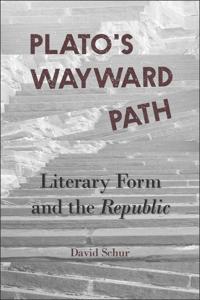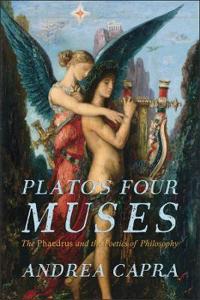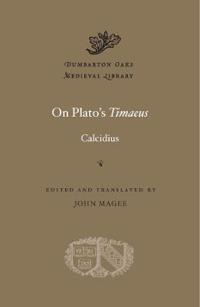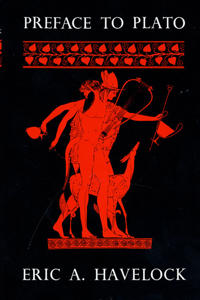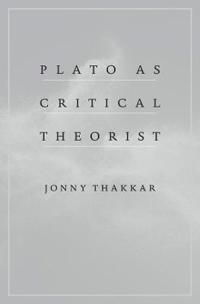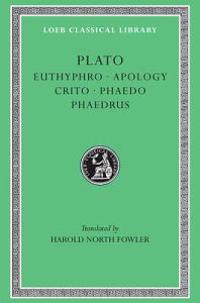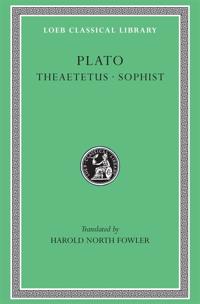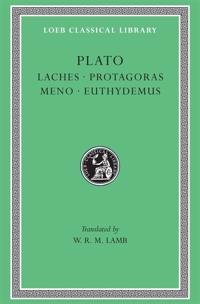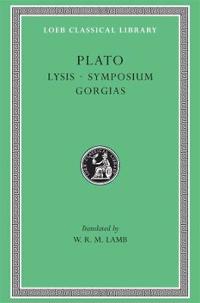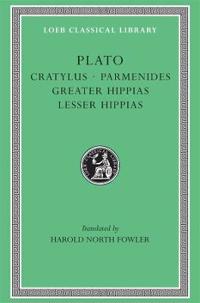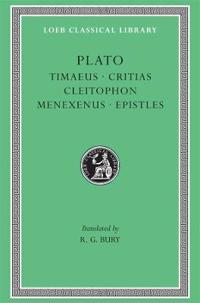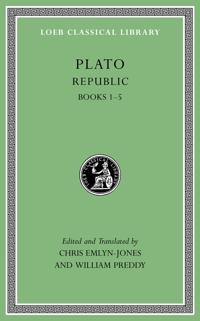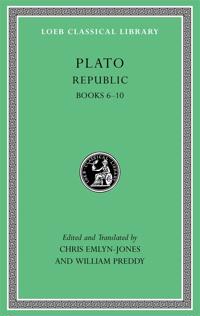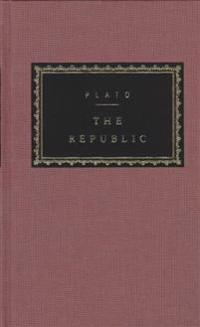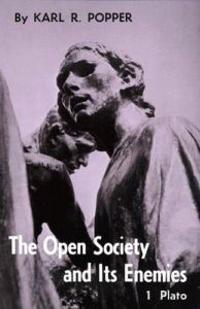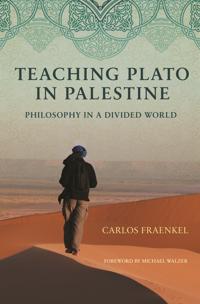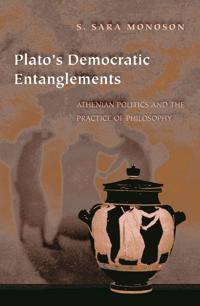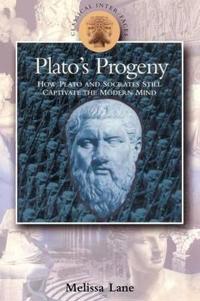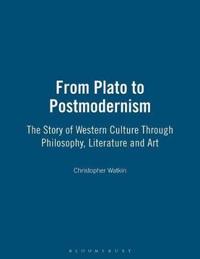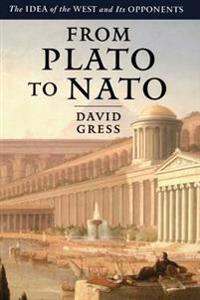Plato's Wayward Path
ISBN: 9780674417212 - UTGIVEN: 2014-12Since Friedrich Schleiermacher s work in the 1800s, scholars interested in the literary dimension of Plato s writings have sought to reconcile the dialogue form with the expository imperative of philosophical argument. It is now common for mainstream classicists and philosophers to attribute vital i[...]
Plato's Four Muses (Pocket)
avAndrea Capra
ISBN: 9780674417229 - UTGIVEN: 2015-01Plato s Four Muses" reconstructs Plato s authorial self-portrait through a fresh reading of the Phaedrus," with an Introduction and Conclusion that contextualize the construction more broadly. The Phaedrus," it is argued, is Plato s most self-referential dialogue, and Plato s reference to four Muses[...]
On Plato?s Timaeus
ISBN: 9780674599178 - UTGIVEN: 2016-04Until the Renaissance, the work of Calcidius offered the medieval West almost the only direct access to Plato s corpus not dispersed in fragments. In the 4th century CE, Calcidius translated into Latin an important section of Plato s "Timaeus," complemented by extensive commentary and organized into[...]
Preface to Plato (Häftad)
avEric A. Havelock
ISBN: 9780674699069 - UTGIVEN: 199007Plato's frontal attack on poetry has always been a problem for sympathetic students, who have often minimized or avoided it. Beginning with the premise that the attack must be taken seriously, Mr. Havelock shows that Plato's hostility is explained by the continued domination of the poetic tradition [...]
Plato as Critical Theorist
ISBN: 9780674971769 - UTGIVEN: 2018-05What is the best possible society? How would its rulers govern and citizens behave? In an era when political idealism seems a relic of the past, these questions are more urgent than ever. Taking seriously Plato's claim that in an ideal society philosophers rule, Jonny Thakkar offers a daring experim[...]
Euthyphro (Inbunden)
avPlato
ISBN: 9780674990401 - UTGIVEN: 1998-02Includes dialogues on Socrates' trial and death and Phaedrus' explanation of the meaning of love in Greek and the English translation[...]
Theaetetus (Inbunden)
avPlato
ISBN: 9780674991378 - UTGIVEN: 192112Plato, the great philosopher of Athens, was born in 427 BCE. In early manhood an admirer of Socrates, he later founded the famous school of philosophy in the grove Academus. Much else recorded of his life is uncertain; that he left Athens for a time after Socrates' execution is probable; that later [...]
Plato Laches, Protagoras, Meno, Euthdemus
ISBN: 9780674991835 - UTGIVEN: 1924-01Plato, the great philosopher of Athens, was born in 427 BCE. In early manhood an admirer of Socrates, he later founded the famous school of philosophy in the grove Academus. Much else recorded of his life is uncertain; that he left Athens for a time after Socrates' execution is probable; that later [...]
Lysis (Inbunden)
avPlato
ISBN: 9780674991842 - UTGIVEN: 1932-12Plato, the great philosopher of Athens, was born in 427 BCE. In early manhood an admirer of Socrates, he later founded the famous school of philosophy in the grove Academus. Much else recorded of his life is uncertain; that he left Athens for a time after Socrates' execution is probable; that later [...]
Cratylus (Inbunden)
avPlato
ISBN: 9780674991859 - UTGIVEN: 192612Plato, the great philosopher of Athens, was born in 427 BCE. In early manhood an admirer of Socrates, he later founded the famous school of philosophy in the grove Academus. Much else recorded of his life is uncertain; that he left Athens for a time after Socrates' execution is probable; that later [...]
Timaeus Critias Cleitophon Menexenus Epistles (Inbunden)
avPlato
ISBN: 9780674992573 - UTGIVEN: 198907Plato, the great philosopher of Athens, was born in 427 BCE. In early manhood an admirer of Socrates, he later founded the famous school of philosophy in the grove Academus. Much else recorded of his life is uncertain; that he left Athens for a time after Socrates' execution is probable; that later [...]
Republic, Volume I (Inbunden)
avPlato
ISBN: 9780674996502 - UTGIVEN: 201302Plato of Athens, who laid the foundations of the Western philosophical tradition and in range and depth ranks among its greatest practitioners, was born to a prosperous and politically active family ca. 427 bce. In early life an admirer of Socrates, Plato later founded the first institution of highe[...]
Republic, Volume II (Inbunden)
avPlato
ISBN: 9780674996519 - UTGIVEN: 201302Plato of Athens, who laid the foundations of the Western philosophical tradition and in range and depth ranks among its greatest practitioners, was born to a prosperous and politically active family ca. 427 bce. In early life an admirer of Socrates, Plato later founded the first institution of highe[...]
The Republic (Inbunden)
avPlato
ISBN: 9780679413301 - UTGIVEN: 199301Toward the end of the astonishing period of Athenian creativity that furnished Western civilization with the greater part of its intellectual, artistic, and political wealth, Plato wrote "The Republic," his discussion of the nature and meaning of justice and of the ideal state and its ruler. All sub[...]
Open Society and Its Enemies, Volume 1: The Spell of Plato (Häftad)
avKarl Popper
ISBN: 9780691019680 - UTGIVEN: 197102Popper was born in 1902 to a Viennese family of Jewish origin. He taught in Austria until 1937, when he emigrated to New Zealand in anticipation of the Nazi annexation of Austria the following year, and he settled in England in 1949. Before the annexation, Popper had written mainly about the philoso[...]
Proclus' Commentary on Plato's "Parmenides" (Pocket)
avDiadochus Proclus
ISBN: 9780691020891 - UTGIVEN: 1992-10-01Plato's Fable: On the Mortal Condition in Shadowy Times (Övrig)
avJoshua Mitchell
ISBN: 9780691124384 - UTGIVEN: 2006-03-06This book is an exploration of "Plato's Republic" that bypasses arcane scholarly debates. "Plato's Fable" provides refreshing insight into what, in Plato's view, is the central problem of life: the mortal propensity to adopt defective ways of answering the question of how to live well. How, in light[...]
Prudes, Perverts, and Tyrants: Plato's Gorgias and the Politics of Shame (Övrig)
avChristina H. Tarnopolsky
ISBN: 9780691128566 - UTGIVEN: 2010-04-12In recent years, most political theorists have agreed that shame shouldn't play any role in democratic politics because it threatens the mutual respect necessary for participation and deliberation. But Christina Tarnopolsky argues that not every kind of shame hurts democracy. In fact, she makes a po[...]
Plato's Ghost: The Modernist Transformation of Mathematics (Övrig)
avJeremy Gray
ISBN: 9780691136103 - UTGIVEN: 2008-09-02Plato's Ghost is the first book to examine the development of mathematics from 1880 to 1920 as a modernist transformation similar to those in art, literature, and music. Jeremy Gray traces the growth of mathematical modernism from its roots in problem solving and theory to its interactions with phys[...]
Teaching Plato in Palestine: Philosophy in a Divided World
ISBN: 9780691151038 - UTGIVEN: 2015-05Teaching Plato in Palestine is part intellectual travelogue, part plea for integrating philosophy into our personal and public life. Philosophical toolkit in tow, Carlos Fraenkel invites readers on a tour around the world as he meets students at Palestinian and Indonesian universities, lapsed Hasidi[...]
Plato's Democratic Entanglements (Pocket)
avS. Sara Monoson
ISBN: 9780691158587 - UTGIVEN: 2013-08In this book, Sara Monoson challenges the longstanding and widely held view that Plato is a virulent opponent of all things democratic. She does not, however, offer in its place the equally mistaken idea that he is somehow a partisan of democracy. Instead, she argues that we should attend more close[...]
Plato's Progeny (Häftad)
avMelissa Lane
ISBN: 9780715628928 - UTGIVEN: 200105Socrates wrote nothing; Plato's accounts of Socrates helped to establish western politics, ethics, and metaphysics. Both have played crucial and dramatically changing roles in western culture. In the last two centuries, the triumph of democracy has led many to side with the Athenians against a Socra[...]
From Plato to Postmodernism
ISBN: 9780715638286 - UTGIVEN: 2011-12From Plato to Postmodernism presents the cultural history of the West in one concise volume. Nearly four thousand years of Western history are woven together into an unfolding story in which we see how movements and individuals contributed to the philosophy, literature and art that have shaped today[...]
In Praise of Plato's Poetic Imagination (Häftad)
ISBN: 9780739143391 - UTGIVEN: 2011-09Plato has often been read as denigrating the cognitive and ethical value of poetry. In his dialogues, the faculty that corresponds to the poetic-the imagination-is located at the lowest level of human intelligence, and so it is furthest from true understanding. Simultaneously, the Platonic dialogues[...]

